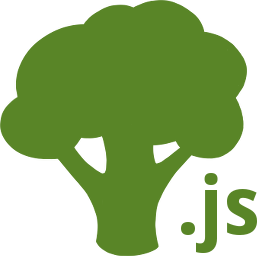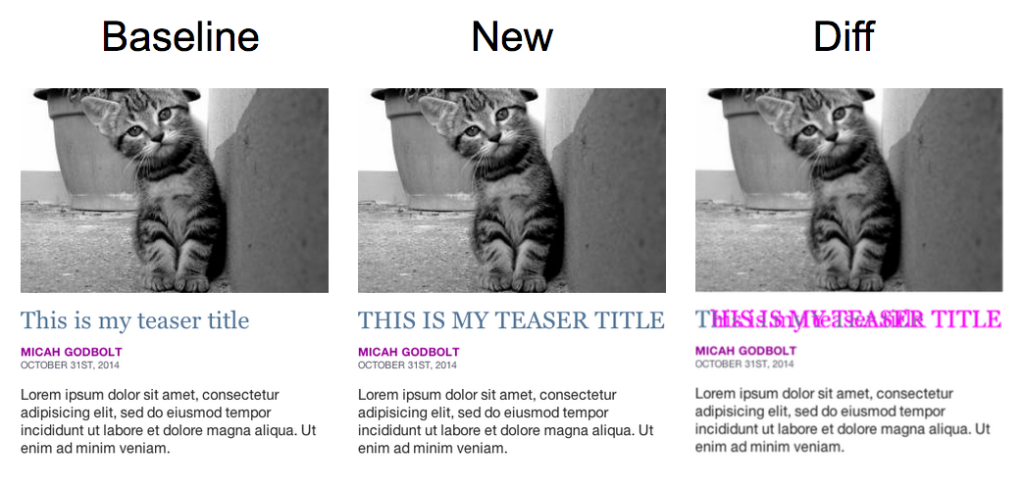Step up your game
&
bring your projects to the Next Level


@ocombe
github.com/ocombe
Front end dev @

Ideal
project
workflow
- Setup your project
- Write code
- Test (unit)
- Build
- Test (e2e)
- Commit
- Tests
- Deploy
Continuous
Integration
Continuous
Delivery
Setup your project

Opinions matter
- Application structure
- group by type
- group by feature/module
- Code conventions
- how to name things
- how to write code
A few things to decide:
- Style guide
- JSCS (code style linter)
Scaffolding Tools
- Use generators
- Let you decide what to include
- Quality depends on the generator used
- 2 main competitors:
- Alternative: use seeds/skeleton apps



Build tools
- One of the most important choice to make
- 4 main competitors:




Grunt
- The largest ecosystem (~4400 plugins)
- Task runner, not really a build tool
- Configuration over code
module.exports = function(grunt) {
// Project configuration.
grunt.initConfig({
pkg: grunt.file.readJSON('package.json'),
uglify: {
build: {
src: 'src/<%= pkg.name %>.js',
dest: 'build/<%= pkg.name %>.min.js'
}
}
});
// Load the plugin that provides the "uglify" task.
grunt.loadNpmTasks('grunt-contrib-uglify');
// Default task(s).
grunt.registerTask('default', ['uglify']);
};Gulp
- The challenger
- Large ecosystem (~1530 plugins)
- Stream-based build system
- Code over configuration
- Easy to customize (it's just js!)
var gulp = require('gulp');
var uglify = require('gulp-uglify');
gulp.task('compress', function() {
return gulp.src('lib/*.js')
.pipe(uglify())
.pipe(gulp.dest('dist'));
});Brunch
- One of the first ones
- In memory file-based build system
- Incremental rebuilds
- Simplification over customization
- Very opinionated
exports.config =
files:
javascripts:
joinTo:
'javascripts/app.js': /^app/Broccoli
- New kid on the block (still in beta)
- Not a vegetable, more like a tree
- File-based build system with caching
- Customization over simplification
- Very flexible (too much?)
var uglifyJavaScript = require('broccoli-uglify-js')
var pickFiles = require('broccoli-static-compiler')
// create tree for files in the app folder
var app = 'app'
app = pickFiles(app, {
srcDir: '/',
destDir: 'appkit' // move under appkit namespace
})
appJs = uglifyJavaScript(app, {
// mangle: false,
// compress: false
});
// export the js tree
module.exports = appJs;Assets managers
- Bundle your libs as static assets
- Support AMD, CommonJS & ES6 modules
- Extendable with plugins
- 3 main competitors:
- Browserify
- Webpack
- JSPM + SystemJS
Browserify
- Built to bring node into the browser
- Opinionated (there is a browser-way-ify)
-
Easy to use If you follow the conventions
- CLI tool
- Config goes into package.json
- Functionalities are split between plugins & transforms
browserify -t es6ify main.js | exorcist bundle.js.map > bundle.jsWebpack
- Built to help the user load all of his assets
- Pretty flexible
- More like a build tool (config file + CLI)
- Requires some work before you can start
- Add new functionalities with loaders & plugins
module.exports = {
context: __dirname + '/app',
entry: './index.js',
output: {
path: __dirname + '/app',
filename: 'bundle.js'
},
module: {
loaders: [{
test: /\.js$/,
loader: 'babel',
exclude: /node_modules/
}]
}
};JSPM + SystemJS
- Built to help the user load all of his assets
- Install assets from anywhere with JSPM
- Load them in the browser with SystemJS
- No build step (except for production)
- Add new functionalities with plugin loaders
<!doctype html>
<script src="jspm_packages/system.js"></script>
<script src="config.js"></script>
<script>
System.import('lib/main');
</script>System.config({
// or 'traceur' or 'typescript'
transpiler: 'babel'
// or traceurOptions or typescriptOptions
babelOptions: {}
});index.html
config.js
import _ from 'lodash-node/modern/lang/isEqual';
import $ from 'jquery';
export function bootstrap() {
// bootstrap code here
}import {bootstrap} from './bootstrap';
bootstrap();main.js
bootstrap.js
Code

(Pre|Post) processors
- Take your code and transform it
- Give you access to new features
- Handle annoying processes for you
- Alert you if necessary
New language features
- With a simple pre-processor:
- CoffeeScript
- Babel (ES2015/JSX)
Traceur (AtScript)- TypeScript
- Why?
- Modularity (modules, imports)
- Clarity (classes, let/const)
- Economy (arrow functions, classes)
- And more (types, annotations, ...)
Other tools
-
Ng annotate:
- Handles angular dependency injection annotations for you
var MyController = function($scope, greeter) {
// ...
}
MyController.$inject = ['$scope', 'greeter'];CSS Processors
- Languages improvements
- SASS
- LESS
- Stylus
- Why?
- Clarity (indentation, variables)
- Economy (variables, mixins)
- Modularity (includes, extends)
- Optimizations
- And more (plugins, syntax check...)
Other tools (2)
Auto reload
- Watch your files
- Reload the browser when needed
- Inject files when possible
- Many tools:
- Browser sync (node)
- Livereload (app)
- Fb flo (browser extension)
Debug
- Sourcemaps
- Chrome extensions:
- Batarang
- Ng-inspector
Test

When you fail,
fail fast,
and not silently
Linting tools
Testing is not wasting time,
it's compensating your flaws
and betting on the long term
Unit tests
- Test individual units of code
- Run fast
- Focus on small/stable testable parts (services, ...)
- Test driven development
Unit tests (2)
E2E Tests
- Test your app in a real browser
- Take time to run
-
Focus on critical paths
-
Test in multiple browsers (BrowserStack / Sauce labs)
- Test runner: Protractor (+ Jasmine)
CSS Testing
- Test visual regressions
- 2 libs based on resemble.js:
- PhantomCSS (requires a full CasperJS setup)
- BacktopJS

Deploy

Changelog
- Make it easier to see notable changes between versions
- Because your memory isn't unbeatable and you might not be around forever
- Because reading git commits doesn't tell everything
- 2 libs:
Documentation
/**
*
* @ngdoc directive
* @name awesomeElement
* @module myModule
* @restrict E
* @description
* This is a directive!
*
**/Continuous integration
Thank you!

Goto Amsterdam
By Olivier Combe
Goto Amsterdam
- 3,314



